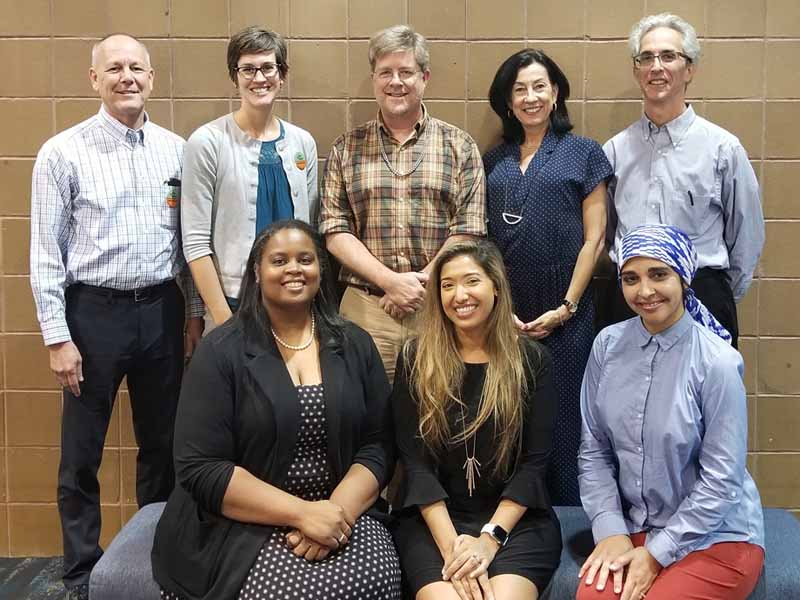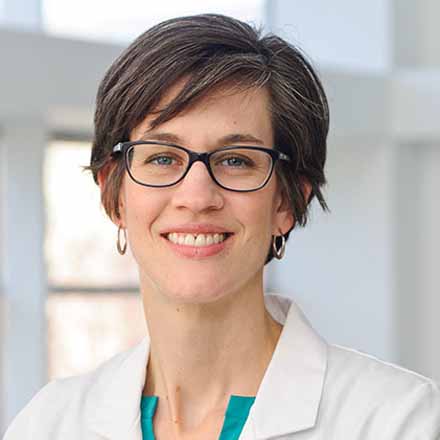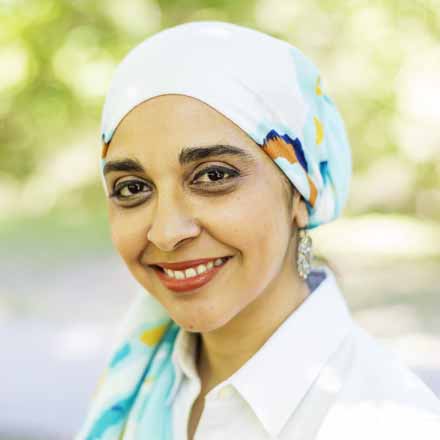Apply Now to Be a 2019-2020 AAFP Vaccine Science Fellow
2018 Fellows Describe Their Experiences in the Program
March 04, 2019, 12:37 pm Chris Crawford – As the AAFP celebrates the 10th anniversary of its Vaccine Science Fellowship program, the Academy is seeking applicants to be 2019-2020 fellows.
Two fellowship positions are available for family physicians interested in working with mentors to become more familiar with the complexities of vaccine science and policy. The deadline to apply is March 22.
The selected applicants will have the opportunity to gain education and practical hands-on experience through participating in meetings with leading experts in public health and immunization, federal and state vaccine policy groups, and vaccine manufacturers.
As the deadline to apply for the 2019-2020 fellowship program approaches, 2018 Vaccine Science Fellows Mina Khan, M.D., of Trussville, Ala., and Laura Morris, M.D., M.S.P.H., of Columbia, Mo., described their experience with the program to AAFP News.
Fellows Tell All
For the past few years, Morris has served on the Missouri Advisory Council on Childhood Immunizations, a group of clinicians and public health experts who review and advise the governor and state legislature on immunization-related policy.

Past and current AAFP Vaccine Science Fellows gather during the 2018 Family Medicine Experience meeting in New Orleans: Front row (from left): Margot Savoy, M.D., M.P.H.; Amra Resic, M.D.; and Mina Khan, M.D. Back row (from left): David Cope, M.D.; Laura Morris, M.D., M.S.P.H.; John Epling, M.D., M.S.Ed.; Pamela Rockwell, D.O.; and Paul Hunter, M.D.
Story Highlights
"I also have an academic interest in evidence-based medicine, and the Vaccine Science Fellowship offered an opportunity to further develop that interest in a specific clinical application," she said. "Past fellows have used their expertise to advise state and national agencies that develop vaccine policy, and I hope to do the same."
Khan said one of her best memories as a fellow was getting to attend the National Foundation for Infectious Diseases' 2018 Clinical Vaccinology course in Bethesda, Md., where she was able to learn firsthand from some of the biggest names in the field of vaccine science.
Being mid-career and well-established in her clinical practice, Khan said she was interested in adding some skills to her résumé that could help her in creating health policy, a special interest for her.
"I felt that the Vaccine Science Fellowship would help me develop more knowledge in this field," she said. "In addition, with the recent resurgence in antivaccine sentiment among some fringe groups, which has now become more widespread, I wanted to be armed with the skills to address this issue and maintain a good level of immunization coverage in the community that I serve."
In fact, said Morris, she learned (and remembered) more vaccine science in that two-day course than she has since medical school.
For her part, Khan said attending the National Vaccine Advisory Committee meeting in Washington, D.C., helped her "learn how some of the policy decisions are made in the field of vaccinology, and how they are then disseminated through different agencies at the national level, and eventually influence policy at state and local levels."
Additionally, Morris said that attending the CDC's Advisory Committee on Immunization Practices policy meetings at CDC headquarters in Atlanta "inspired great confidence to see the thoughtful and thorough work that goes into creating the national vaccine recommendations and vaccine schedule."
Along with basic sanitation practices such as handwashing and the advent of clean drinking water, Morris said vaccines represent one of the most effective ways to protect public health; they effectively save lives in a way that the most expensive, most exotic new medications on the market will never be able to touch.

2018-2019 Vaccine Science Fellow Laura Morris, M.D., M.S.P.H.
"It seems like the recent U.S. cases of measles are far away from my practice in Missouri, but in reality, all communities are vulnerable -- some much more so when vaccination rates fall below the threshold needed for herd immunity," she said. "I have a responsibility to keep all families in my community as healthy as possible, and that means investing the time to counsel patients and parents about vaccinations."

2018-2019 Vaccine Science Fellow Mina Khan, M.D.
Khan said that with the current environment of vaccine hesitancy and resurgence of communicable diseases that once were only read about in medical textbooks, it's important to be well equipped to address these issues.
"I believe that the Vaccine Science Fellowship provides these skills and can be particularly useful for physicians who are involved in teaching medical students, residents and even support staff, such as registered nurses, licensed practical nurses and medical assistants," she said.
Another group of physicians that can specifically benefit from the fellowship, Khan said, are those directly involved in influencing policy, such as those who may serve on a state or local advisory board.
"Since joining the fellowship, I have personally taught lectures about vaccine confidence to medical assistant students who are often the first point of contact in a medical practice for patients and caregivers who may have questions or reservations about vaccines," Khan said.
Apply Now
Morris said family physicians who are interested in learning more about the science behind vaccine development and production should apply for the fellowship because it offers an educational opportunity unlike anything she's encountered since residency.
"I couldn't have arranged these experiences on my own even if I would have tried!" she said. "I've seen the insider's view of how vaccines are created, tested and deployed, as well as the policy development process."
Khan credited the fellowship with giving her a great opportunity to network and make contacts that she said will be highly valuable for the rest of her medical career.
"The mentors, many who are graduates of the Vaccine Science Fellowship themselves, have been extremely helpful in shaping the fellowship for me and providing valuable personal insight and knowledge when needed."
Fellowship applications should be emailed to Pamela Carter-Smith, M.P.A., along with a curriculum vitae, letter of interest, completed AAFP conflict of interest form, a photo and a letter from the physician's institution or department agreeing that 10 percent of the applicant's time will be devoted to the fellowship.
Related AAFP News Coverage
Applications Open for 2018 AAFP Vaccine Science Fellowship
(5/16/2018)